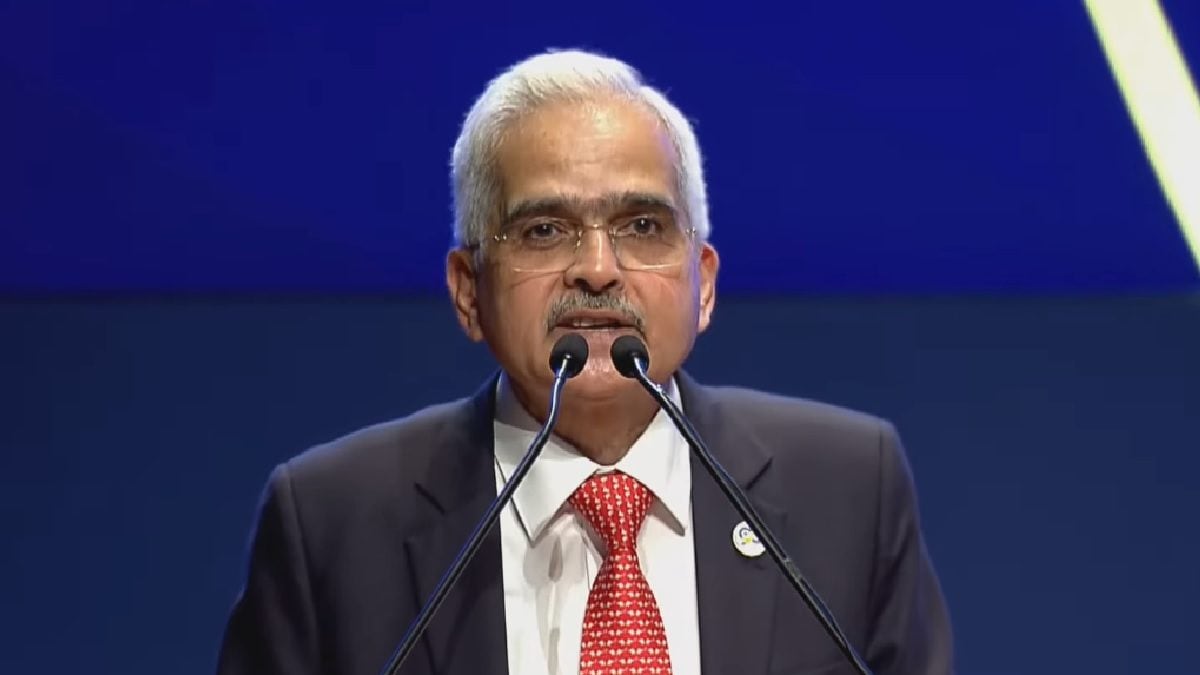The Reserve Bank of India (RBI) is maintaining close watch on the financial markets and is taking action when necessary to ensure stability, Governor Shaktikanta Das affirmed. He stated that while the central bank does not act as a “policeman,” it actively monitors the credit market and employs regulatory measures when warranted. These remarks come after the RBI issued a cease and desist order to Navi Finserv and three other non-banking financial companies (NBFCs) on October 21, citing concerns related to their lending practices, particularly usurious pricing.
Regulatory Vigilance and Corrective Action
Governor Das emphasized that the RBI is not a reactive body solely focused on punishment but a proactive and watchful entity in the financial sector. He asserted that the central bank maintains a strict vigil on credit markets and readily steps in to take corrective action whenever it deems necessary. The recent directives issued to Navi Finserv and other NBFCs are a clear indication of the RBI’s active role in addressing potential risks and ensuring the stability of the financial system.
RBI’s Focus on Financial Stability
This proactive approach highlights the RBI’s commitment to maintaining a stable and healthy financial environment. The central bank actively monitors market activity and uses its regulatory powers to address concerns such as unfair lending practices and protect consumers from predatory borrowing. By taking a pre-emptive approach, the RBI aims to curb any potential threats before they escalate and disrupt the financial system.
Importance of Timely Action
The RBI’s intervention highlights the importance of timely regulatory action in the financial sector. Prompt intervention can help address emerging risks, mitigate potential systemic damage, and safeguard the interests of both borrowers and lenders. The central bank’s actions demonstrate that it is not only watching but also prepared to act swiftly when necessary.
A Strong Indian Economy Despite Challenges
Governor Das expressed his optimism about India’s growth prospects, emphasizing that despite various external challenges, the country’s growth story remains intact. He cited the significant decline in inflation, now well within the target range, and its expected continued moderation. The RBI remains vigilant in monitoring both growth and inflation, recognizing the potential risks, and taking necessary measures to navigate the current landscape.
Balancing Growth and Stability
The RBI’s approach to navigating the economy emphasizes finding a delicate balance between promoting growth and maintaining financial stability. While recognizing the importance of economic expansion, the central bank also emphasizes the need for responsible lending and prudential regulations to mitigate financial risks. The ongoing efforts to maintain price stability and address financial market concerns reflect this careful balance.
India’s Growth Trajectory
Despite global economic uncertainties, India’s economic growth story remains compelling. The RBI’s efforts to ensure financial stability and manage inflation will likely continue to support India’s growth trajectory and enable the country to navigate the challenges of the global economy.
Takeaway Points
- The RBI maintains a vigilant approach to financial markets and takes action when necessary to ensure stability.
- The recent action against Navi Finserv and other NBFCs demonstrates the central bank’s commitment to addressing concerns related to lending practices.
- The RBI prioritizes financial stability while simultaneously striving for economic growth.
- Despite global challenges, India’s growth story remains intact, aided by the RBI’s proactive efforts to maintain financial stability and manage inflation.









